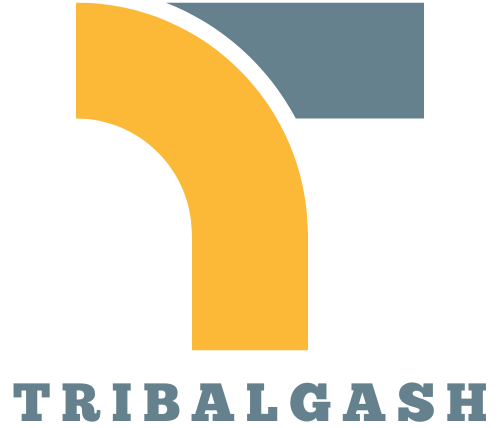In a world where originality reigns supreme, the last thing anyone wants is to find themselves on the wrong side of a plagiarism scandal. With ChatGPT at their fingertips, many are tempted to take shortcuts, but the stakes are high. Imagine your professor’s face when they discover your essay was crafted by a chatbot instead of your brilliant mind. Yikes!
Table of Contents
ToggleUnderstanding Plagiarism
Plagiarism poses significant risks for students and professionals alike. Understanding what it entails helps individuals avoid serious breaches of academic integrity.
What Is Plagiarism?
Plagiarism refers to the act of using someone else’s work or ideas without proper attribution. This includes copying text, images, or data from another source. Even paraphrasing someone else’s thoughts without citation falls under this definition. Academic institutions consider plagiarism a serious offense that can lead to penalties, including failing grades or expulsion. Originality is essential in maintaining credibility. Regardless of the format, whether written, visual, or auditory, any work that lacks proper credit constitutes plagiarism.
Common Misconceptions About Plagiarism
Many believe that plagiarism only involves direct copying of text, which is not accurate. Even reworded content can qualify as plagiarism if the original source remains uncredited. Some think using AI tools eliminates plagiarism risks. However, AI-generated content can still contain unoriginal ideas or phrases. Another misconception involves self-plagiarism, where individuals reuse their own previously submitted work without reauthorization. This practice is also frowned upon in academic settings. Recognizing these misconceptions helps in navigating the complex landscape of originality in writing.
Using ChatGPT Effectively

Utilizing ChatGPT effectively can enhance originality. Here are some steps to ensure unique submissions.
Crafting Unique Content
Focusing on original ideas strengthens the writing process. Writers can input prompts that encourage creative responses. For instance, instead of asking for an essay directly, pose questions that require analytical thinking. ChatGPT can generate outlines based on specific themes, guiding users to craft distinct narratives. Personal insights can also be added to the AI-generated text. Integrating original thoughts into drafts increases the authenticity of the work, reducing the chance of plagiarism.
Paraphrasing Techniques
Effective paraphrasing techniques help avoid plagiarism. Utilizing ChatGPT to rephrase sentences effectively translates information into unique expressions. Writers can input original text, requesting reworded options. Altering sentence structures and changing word choices contributes to unique presentations. Additionally, incorporating synonyms or altering the order of ideas keeps the essence intact while infusing originality. Ensuring proper citations accompanies paraphrased content will enhance the credibility of the work, fulfilling academic integrity requirements.
Strategies to Avoid Detection
To maintain originality while minimizing plagiarism risks, specific strategies can guide writers in utilizing AI tools effectively.
Tips for Originality
Focus on generating distinctive ideas. Craft unique prompts that inspire creativity and critical thinking. Encourage the exploration of themes rather than simply asking for written content. When using ChatGPT, emphasize personal insights. By embedding individual perspectives into the output, a more authentic narrative emerges. Moreover, experiment with different writing styles and formats. This approach not only diversifies the content but also helps reinforce originality.
Importance of Citing Sources
Proper citation plays a crucial role in academic integrity. Acknowledging the source of information ensures transparency and credibility. Not only does citing sources prevent plagiarism, it also enhances the work’s reliability. Incorporate citations directly into AI-generated content wherever applicable. Establishing proper attribution fosters respect for original authors. A robust bibliography at the end of a project further solidifies the integrity of the work. By prioritizing citations, writers contribute positively to the scholarly community.
Ethical Considerations
Ethical considerations play a vital role in writing and academic environments. They encompass principles of honesty and respect for intellectual property.
The Role of Academic Integrity
Academic integrity serves as a foundation for scholarly work. Upholding this principle fosters trust between students and educators. Originality in assignments reflects commitment to learning and personal growth. Institutions expect students to present their own ideas and analyses. Using AI tools responsibly aligns with these expectations, ensuring that the work produced remains authentic. When writers embrace academic integrity, they contribute positively to the academic community, promoting a culture of respect for diverse ideas and contributions.
Consequences of Plagiarism
Plagiarism carries serious consequences, impacting both academic and professional futures. Failing grades often result from detected plagiarism in assignments. Expulsion from academic institutions can occur when repeated violations are confirmed. Consequences extend beyond academic settings; professionals may face job loss or damage to their reputations. Legal ramifications also exist when copyright infringement occurs. The risks associated with plagiarism highlight the importance of commitment to original work and ethical writing practices. Maintaining integrity not only safeguards one’s academic path but also cultivates a personalized writing style.
Navigating the world of writing with AI tools like ChatGPT requires a commitment to originality and integrity. By understanding the nuances of plagiarism and the importance of proper attribution, writers can confidently utilize these technologies without compromising their academic and professional futures.
Emphasizing personal insights and crafting unique prompts can lead to authentic narratives that stand out. It’s essential to integrate proper citations and maintain transparency in all work. Upholding these principles not only enhances credibility but also fosters a culture of respect for intellectual property.
Ultimately, embracing originality in writing reflects a dedication to personal growth and learning, ensuring a successful journey through academia and beyond.









